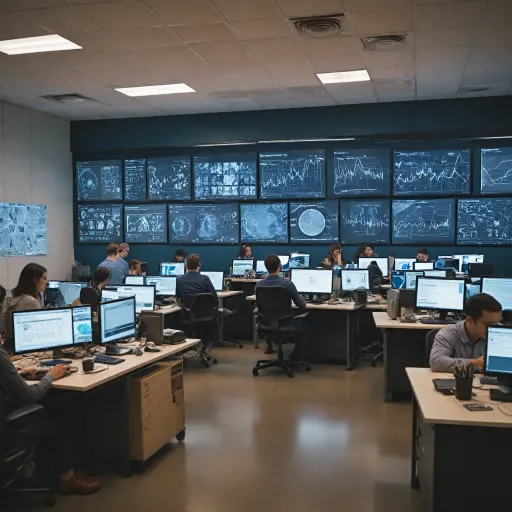
Understanding the role of remote hospitality virtual assistants
Expanding the Scope of Hospitality Roles with Virtual Assistants
The hospitality industry has seen a significant shift in recent years, with remote hospitality virtual assistants becoming an integral part of daily operations. These assistants are not just about managing administrative tasks or handling data entry—they are transforming how hotels and hospitality businesses approach customer service, guest experience, and HR analytics.
Virtual assistants in hospitality bring a unique blend of communication skills, attention to detail, and proficiency in relevant technologies. Their remote role allows them to support a wide range of functions, from customer support to social media management, and even data collection for HR analytics. This flexibility means that tasks include everything from responding to guest inquiries to assisting with employee onboarding and managing long-term projects.
- Customer satisfaction: Virtual assistants play a key role in ensuring guests receive timely and accurate information, directly impacting customer satisfaction scores.
- Administrative efficiency: By handling repetitive administrative tasks, assistants free up full-time staff to focus on more strategic initiatives.
- Data-driven insights: Their involvement in data entry and management supports the collection of valuable HR data, which can be applied to improve employee engagement and retention.
With years of experience in customer service and problem solving, these assistants are well-equipped to handle the dynamic needs of the hospitality sector. Their support extends beyond traditional roles, offering services that enhance both the employee and guest experience. As the demand for remote roles grows, the skills and experience of virtual assistants become even more crucial for hotels aiming to stay competitive.
For those interested in how innovative perks can further boost employee satisfaction and retention in hospitality, check out this resource on exploring innovative employee perks.
Key HR analytics challenges in hospitality
Common Obstacles in Hospitality HR Analytics
The hospitality industry faces unique challenges when it comes to human resources analytics. The fast-paced environment, high employee turnover, and the need for excellent customer service make managing HR data complex. Many hotels and hospitality businesses struggle to collect and analyze the right data, which impacts their ability to make informed decisions about their workforce.
- High Turnover Rates: Hospitality roles, especially in customer support and guest services, often see frequent staff changes. This makes it difficult to track employee engagement, satisfaction, and long-term performance trends.
- Data Fragmentation: HR data is often scattered across multiple platforms, from time management systems to payroll and social media channels. This fragmentation complicates data entry, analysis, and reporting.
- Manual Administrative Tasks: Many HR teams still rely on manual processes for tasks like onboarding, scheduling, and managing employee records. This not only consumes valuable time but also increases the risk of errors and reduces attention to detail.
- Communication Barriers: With a diverse workforce, including remote and full-time staff, effective communication is a challenge. Poor communication skills or lack of proficiency in relevant tools can hinder the flow of information needed for accurate analytics.
- Data Privacy Concerns: Handling sensitive employee data requires strict attention to privacy and security. Ensuring compliance with regulations while maintaining efficient data access is a constant balancing act.
These challenges highlight the need for innovative solutions. Virtual assistants and assistant virtual services are increasingly being applied to support HR teams in managing data, improving communication, and automating repetitive tasks. Their role in enhancing attention to detail, problem solving, and customer satisfaction is becoming more critical as the industry evolves. For a deeper look at how technology is being harnessed to promote workplace equity and address these challenges, you can explore how technology is driving workplace equity in hospitality and beyond.
How virtual assistants support HR data collection
Streamlining Data Collection for Actionable Insights
Remote hospitality virtual assistants are playing a crucial role in making HR analytics more accessible and actionable for hotels and hospitality businesses. Their support in data entry, administrative tasks, and managing guest and employee information is transforming how HR teams gather and process data. With years of experience in customer service and proficiency in relevant digital tools, these assistants help ensure that the data collected is accurate, timely, and detailed.
- Efficient Data Entry: Virtual assistants handle large volumes of HR data, from employee records to customer feedback, with strong attention to detail. This reduces errors and saves valuable time for HR professionals.
- Consistent Data Management: By managing tasks such as updating employee profiles, tracking attendance, and logging training sessions, assistants help maintain up-to-date and reliable datasets for analytics.
- Enhanced Communication: Virtual assistants facilitate communication between HR teams and staff, ensuring that information flows smoothly and that feedback is captured for analysis.
In the hospitality sector, where customer satisfaction and employee engagement are tightly linked, the ability to collect and analyze data efficiently is vital. Virtual assistants support this by applying their problem-solving skills and experience in customer support to gather insights that drive better decision-making. Their remote role allows for flexible, full-time or long-term support, adapting to the evolving needs of hotels and hospitality services.
For those interested in how AI and virtual assistants are shaping customer support analytics, including the analysis of CSAT scores, this resource offers a deeper look at the impact of technology in hospitality HR analytics.
Improving employee engagement and retention with analytics
Boosting Engagement with Actionable Insights
Remote hospitality virtual assistants are making a real difference in how hotels and hospitality businesses understand and improve employee engagement and retention. By managing administrative tasks and supporting data entry, these assistants help HR teams collect and analyze feedback from staff more efficiently. This means HR professionals can spot trends and act on issues before they become bigger problems.
- Data-driven feedback: Virtual assistants gather and organize employee feedback, performance reviews, and satisfaction surveys. This data gives HR a clear view of what motivates staff and where improvements are needed.
- Real-time monitoring: With virtual support, HR can track engagement metrics in real time. This helps identify when employees may be at risk of leaving, so managers can intervene early.
- Personalized communication: Assistants can automate personalized messages, reminders, and recognition for achievements. This boosts morale and shows employees their contributions are valued.
Retention Strategies Powered by Virtual Support
Retention is a major challenge in hospitality, where customer service and guest experience depend on skilled, motivated staff. Virtual assistants play a key role in supporting long-term retention strategies by:
- Helping HR analyze exit interview data to spot patterns and address root causes of turnover
- Managing onboarding and training schedules, ensuring new hires feel supported from day one
- Assisting with social media and internal communication to keep staff informed and engaged
With years of experience in customer support and attention to detail, virtual assistants free up HR teams to focus on building a positive workplace culture. Their proficiency in relevant tools and problem-solving skills make them valuable partners in driving employee satisfaction and loyalty.
Enhancing recruitment and onboarding processes
Streamlining Recruitment with Data-Driven Insights
Recruitment and onboarding in hospitality have always demanded a careful balance between speed, accuracy, and the human touch. Virtual assistants are now playing a crucial role in transforming these processes by leveraging data and technology to support HR teams. Their involvement helps hotels and hospitality businesses manage high volumes of applications, maintain attention to detail, and ensure a seamless candidate experience.
- Efficient Data Entry and Screening: Virtual assistants handle repetitive administrative tasks such as data entry, resume screening, and initial candidate communication. This not only saves time for HR professionals but also reduces errors and ensures that no qualified candidate is overlooked.
- Enhanced Communication Skills: With strong communication skills, virtual assistants can provide timely updates to candidates, answer queries, and schedule interviews. This improves the overall candidate experience and reflects positively on the employer brand.
- Proficiency in Relevant Tools: Many virtual assistants bring years of experience with applicant tracking systems and HR software. Their proficiency ensures that data is managed securely and efficiently, supporting compliance and data privacy requirements.
- Personalized Onboarding Support: Once a candidate is hired, virtual assistants can assist with onboarding tasks, from document collection to scheduling training sessions. Their attention to detail and customer service mindset help new hires feel welcomed and supported from day one.
By integrating virtual assistants into recruitment and onboarding, hospitality businesses benefit from improved problem solving, long-term cost savings, and higher customer satisfaction. The ability to manage large volumes of data and administrative tasks remotely allows HR teams to focus on strategic initiatives and deliver a better guest and employee experience. As the hospitality sector continues to evolve, the role of virtual assistants in managing and supporting HR analytics will only become more significant.
Overcoming data privacy and security concerns
Building Trust in Virtual HR Data Management
The hospitality industry handles sensitive employee and guest data every day. With the rise of remote hospitality virtual assistants, managing this information securely has become a top priority. Virtual assistants are often responsible for tasks like data entry, customer service, and administrative tasks, which means they regularly interact with confidential details. Ensuring data privacy and security is not just about compliance—it’s about maintaining trust with both staff and guests.Key Strategies for Data Privacy and Security
Virtual assistants, whether full time or part time, must follow strict protocols to protect sensitive information. Here are some practical ways organizations are addressing these concerns:- Role-based access: Limiting data access based on the assistant’s role helps prevent unauthorized use. Only those with the right skills and years of experience handle sensitive HR data.
- Secure communication channels: Using encrypted messaging and secure cloud platforms ensures that customer support and HR communication remain private.
- Regular training: Virtual assistants receive ongoing training in data privacy, attention to detail, and problem solving, which helps them recognize and avoid potential security risks.
- Compliance checks: Hospitality businesses regularly audit their data management practices to comply with regulations and maintain high standards of customer satisfaction.













